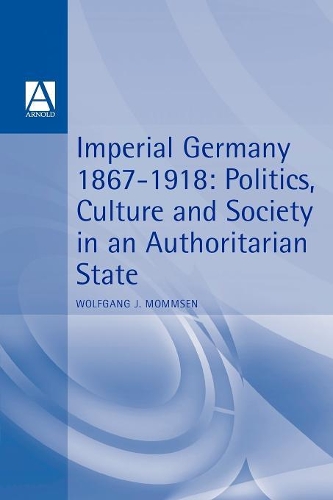
Imperial Germany 1867-1918: Politics, Culture, and Society in an Authoritarian State
(Paperback)
Publishing Details
Imperial Germany 1867-1918: Politics, Culture, and Society in an Authoritarian State
By (Author) Wolfgang J. Mommsen
Bloomsbury Publishing PLC
Hodder Arnold
1st April 2003
United Kingdom
Classifications
General
Non Fiction
Social groups, communities and identities
Cultural studies
943.08
Physical Properties
Paperback
320
Width 154mm, Height 232mm, Spine 27mm
Description
The power of the Prussian state, with its outward splendour and military pageantry, and with the prestige it began to enjoy within the system of European states, gradually came to outweigh older traditions of cultural identity. The imperial period saw the formation of all the principal institutional structures which have continued to govern life in Germany, and all the foundations of present-day cultural life. Yet the German Empire remained a state distorted by authoritarianism. All areas of life were affected, politics, the economy, the arts, education and foreign policy, and a widening gulf opened between the political system and society, putting at risk the very governability of the Empire. It was in these conditions that Germany went to war in 1914, a conflict which ended with the collapse of the Hohenzollern monarchy and revolution. This book offers a cogent analysis of the main developments and issues in a formative and portentous period of Germany's history.
Reviews
'An absolutely central contribution to major questions of German historical scholarship on the period 1870-1920' * Michael John, University of East Anglia *
'An excellent introductory student guide.' * History *
Author Bio
Wolfgang J. Mommsen was Professor of History at the Universities of Cologne and Dusseldorf, Germany, and the Director of the German Historical Insititute in London, UK.
